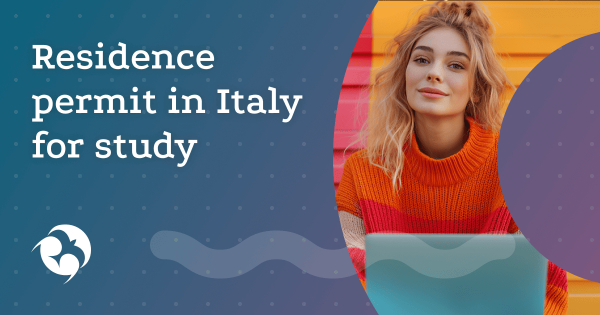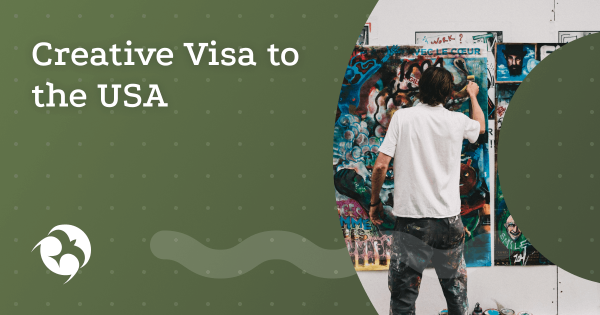Italy traditionally attracts students from different countries. Admission to an Italian university opens the way to quality education and internships in leading European companies. Teachers from Europe and America prepare specialists with academic knowledge for various industries. At the same time, foreign students quickly integrate into the multilingual Italian society, move freely around the Schengen area, attend international conferences and seminars.
To enter the country, applicants are issued national visas, resident cards (permesso per motivi di studio) are issued on the spot for a year with the right to extend for the period of study. After receiving a diploma, the Schengen is extended for another 12 months to find a job, converted into a residence permit on the basis of “subordinate work”. If an individual entrepreneur registers with the Chamber of Commerce, expats submit an application for a business visa to the immigration department. After 5 years, they have the right to apply for permanent residence, and after that they become citizens of the European Union.
What higher education programs are available in Italy
Italian children study at secondary school for 13 years, then enter a lyceum, choose a university curriculum. To enroll in a bachelor’s degree in Italy, foreign students have to complete a year of study at a college or institute. Prospective students with English level B1-B2 also take the Foundation program in order to:
- study Italian and specialized disciplines;
- smooth integration into the environment and culture;
- getting to know an educational institution;
- the teaching staff.
The higher education system consists of 3 stages: bachelor’s degree, Master’s degree and doctoral degree. It includes universities, polytechnics, technical universities, and art schools. Many educational institutions offer scholarships and grants to foreigners.
The country’s universities use two types of programs:
- Limited enrollment programs (with limited admission) involves taking entrance exams online and in the classroom. The exception is applicants who plan to enroll in medical institutions. They are awarded according to the average score of the certificate.
- Open admissions (with unlimited admission) assesses the level of training. If knowledge is low, school graduates complete their courses.
The Bachelor’s degree (Laurea) in the Bologna system is the first stage of higher education. Training lasts 3 years, rarely 4. Specialty programs in medicine, law, engineering, architecture last 5 years and are equivalent to a master’s degree. Each student is required to receive 60 educational credits. One credit is equal to 25 academic hours.
After graduation, graduates complete a one-year Master of the first level program for advanced training or Laurea Magistrale lasting 24 months. The curriculum includes theory, seminars, electives, workshops, and research work.
Doctorate (Dottorato di Ricerca) is the highest level of qualification. Students write dissertations and become experts in various fields. The PhD degree is recognized worldwide and opens the doors to international research institutes.
Types of student residence permits (Studio)
The following laws “On Immigration” from 1960, No. 943/1986, No. 39/90, regulating the legalization of foreign students, among others, are in force in Italy. They list 20 types of residence permits. Among themselves, permesso di soggiorno differ in goals and grounds. They are issued for adoption, guardianship, for humanitarian / religious reasons, even for registration of lost citizenship. After 5 years of assimilation, relocants, if they have income and comply with the visa regime, receive permanent residences of the EU model. It is important to note that most categories are either inaccessible to a number of foreigners or are considered non-immigrant.
Short-term visa C
This is a tourist type of visa. They are issued for short-term visits to Italy for 90/180 days. It is suitable for travel, solving business issues, guest trips by invitation without the right to activity, but with the possibility of extension up to a year. The category is also issued to students who plan to take language courses and other educational programs in 3 months without the right to prolongation.
Long-term national D
This type is suitable for job search, long-term travel, and medical treatment. They open for students to enter. On the basis of Schengen D (per studio), annual residencies are issued for bachelor’s, master’s, and doctoral studies. The Studio student type not only legalizes living in Italy, but also allows you to work 4 hours a week. Students are employed through employment centers, work departments at universities. For objective reasons, the duration of stay is extended in the questura.
Requirements for the applicant
The migration authorities have compiled a set of rules for international students. School graduates and people who have previously received diplomas from other institutions can study in Italy. Documents for studies are accepted on the basis of:
- a certificate of secondary education;
- invitations from the educational institution;
- information about the average score;
- language certificate;
- an apartment rental agreement or a receipt for paying for a place on the student campus.
According to Decreto Legislativo No. 286/1998, citizens of third countries are required to confirm their ability to pay. Adult applicants must attach certificates of non-conviction. If the teenager is under the age of 18, the consent of both parents/guardians is required.
Required documents
This is a basic list of documentation. You need to clarify the information at the consulate. There is also an additional list of papers, depending on the specific situation. List:
- passport with blank pages;
- application form for a national visa;
- digital photos;
- notarized translation (with apostille) of the school certificate;
- a bank statement with the balance amount, a letter of sponsorship from parents who agree to pay 6,000€ per month;
- confirmation of the reserved place of residence;
- a receipt for tuition fees or a guarantee obligation for partial payment of the amount;
- motivation letter in English/Italian;
- medical insurance with minimal coverage of services.
The process of obtaining is step-by-step
Information on education, entry procedures, and enrollment of foreigners to faculties is provided on the website of the Ministry of Education.
- Studies begin with pre-admission, i.e. applying on the UNIVERSITALY portal. Applicants then print out the application form for a paper dossier, start translating documents using the services of an accredited translator of the embassy or a notary.
- After apostilling the papers, the dossier is submitted to the consulate by making an appointment on the slot. Employees redirect folders to universities to get admissions for exams or interviews.
- The next step is to obtain a long-term entry visa based on the listed documents for passing tests, final enrollment, and registration of permesso di soggiorno.
- After arriving in Italy, students fill out questionnaires for cards within a week. Samples are given out at the post offices at the place of residence. They are put in envelopes along with receipts for payment of contributions, sent to the police headquarters (Questura).
- Within 5-10 days, they receive notifications about the need to visit the migration service in order to take fingerprints and pass an interview with a dossier, a certificate from the university about enrollment. After a short period of time, an invitation to pick up an ID card at the office arrives by mail.
Terms and cost
In 2024-2025, the international situation remains tense and it is not so easy to get Schengen. Italian diplomatic missions resumed accepting documents in May and issue visas to all categories of the population.
Since June 2024, the administrative fee for tourists has been 90€, for students – 60€. For children aged 6-12, parents pay half the amount. The fee is not levied on family members of EU citizens, direct descendants of Italians, spouses under the age of 21 or dependent. The cost of other services can be found in the list of consular fees. The registration period depends on the purpose of the trip and the category. Tourist, guest and business categories are opened in 10-30 days, working and student categories within 2 months. With a documentary justification of the reason, it is possible to issue a Schengen visa in an accelerated manner in 2-3 days at twice the cost. Payment is accepted by card, at the bank at the rate of the consulate.
The rights and obligations of the holder of a residence permit
Temporary residents of the country are endowed with the rights prescribed in Law No. 40 of 1998. Expats are allowed to:
- legally reside in the territory, study and work;
- extend deadlines, apply for permanent residence;
- to move freely in the European Union;
- to work for hire, to conduct business activities;
- to receive education in various programs, medical care;
- to purchase real estate.
The law obliges to comply with the migration regime, live at the place of registration, notify the municipal authorities of the move, pay taxes on time, and not violate public order.
Extension of a residence permit for studies
The papers for the extension of the relocation are sent by mail to the questura at the place of residence 3-4 months before the expiration of the permesso, 8 weeks before the end of the work contract and a month before the end of studies. The lists for different categories vary. Main documents:
- scans of the residence permit;
- photocopies of passport pages;
- a specialist needs a certificate of income not lower than the amount of social benefits;
- to the student – a certificate of passing exams or transfer to the next course, a copy of the insurance policy;
- other categories – a document of residence or a declaration of hospitality;
- the lease agreement;
- to the entrepreneur – copies of the INN (codice fiscale), tax returns.
In immigration practice, the Studio type is considered as an intermediate option for obtaining a residence permit. It is allowed to convert it into a working, autonomous, family, business residence. After graduation, many apply for a residence permit to find a job. Residence is freely granted for 12 months to bachelors, holders of first/second level diplomas, and masters after registration at the Employment Center.
Common problems and their solutions
Russians often complain about delays in processing documents. To get there before the start of the school year, it is better to start the process at least 3 months in advance. Visa centers accept dossiers six months in advance. If difficulties arise, you can contact the international department of the university or an immigration lawyer. A correctly compiled list of documents, consistent execution of all stages will help to avoid problems with the registration of Schengen and residence permit.












